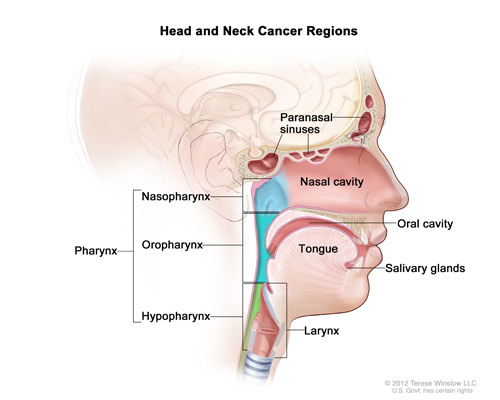Cancers of the head and neck are uncommon and the treatment is complicated by the fact that they arise in a confined space, with treatment having a significant impact on patient quality of life.
Cancers that are known collectively as head and neck cancers usually begin in the squamous cells that line the moist, mucosal surfaces inside the head and neck. Due to the sites of origin having tumours which behave differently, they are divided into their sites of origin; the mouth, throat, voice box and sinuses, and the impact of treatments are different according to the sites of origin.
Alcohol and tobacco use (including smokeless tobacco) are the two most important risk factors for head and neck cancers, especially cancers of the oral cavity, usually affecting the older patient population. With a decline in cigarette smoking, another common cause of cancers in the mouth and throat are due to a virus called human papilloma virus (HPV).
Treatment of these types of cancers take a number of factors into consideration related to the disease in terms of its location and stage, the patient in terms of their age, and other diseases they may have, as well as the doctors preference and skill.
Treatment may take the form of surgery or radiotherapy alone or in combination depending on the site of the disease. Early stage disease is usually curable with a single form of therapy, whereas later stages of the disease are treated using a combination of surgery and radiotherapy or radiotherapy alone, which is then administered alongside low doses of chemotherapy to enhance its effect.
The outcomes for patients with cancers of the head and neck region depend on the site of the disease as well as the stage.
For patients whose disease relapse, the options depend on what treatment they have had in the past. Surgery, if possible, can be used or radiotherapy if it had not been used as part of the prior treatment. Although these cancers can spread via the blood stream to other parts of the body, it is not common and usually occurs late in the disease process.
For patients whose disease has recurred and no local forms of treatment are possible or the disease has spread to other parts of the body, treatment is palliative and aimed at maintaining a quality of life while extending life. This consists of chemotherapy.
Trials in Head and Neck Cancer
Pembrolizumab is a new drug which targets a pathway that renders cancer cells immortal. We are conducting a trial comparing pembrolizumab to the standard of care for patients whose head and neck cancer has recurred or metastasised and where salvage treatment as in surgery or radiotherapy is not possible. The standard chemotherapy for this group of patients is Cisplatinol and 5 Flouro-uracil with Cetuximab; a targeted drug which has been shown to work in head and neck cancer.
If you find yourself in this unfortunate position and would like to discuss this option, fell free to contact us.
